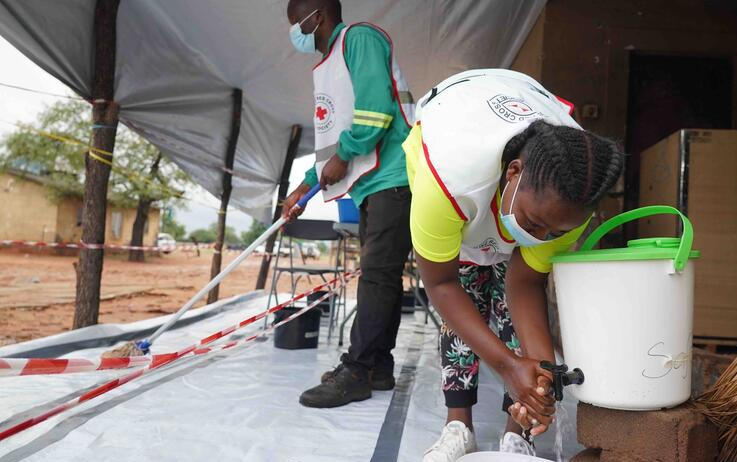News & Events
2024/03/21
Inadequate Access to Clean Water, Soap, Toilets, and a Shortage of Cholera Vaccine
Zimbabwe Red Cross personnel working at a Cholera Treatment Centre at the Mapanza Communal Farm in the area of Chiredzi
According to the International Coordinating Group (ICG), urgent action is required to curb an unprecedented, multi-year surge in cholera cases worldwide. These actions encompass ensuring access to safe water, sanitation, and hygiene, promptly testing and detecting outbreaks, enhancing the quality and accessibility of healthcare, and expediting the production of additional affordable doses of oral cholera vaccine (OCV) to better prevent cases.
The ICG comprises the International Federation of Red Cross and Red Crescent Societies, Médecins Sans Frontières, UNICEF, and the World Health Organization (WHO). Its purpose is to manage the global cholera vaccine stockpile.
As per the WHO report in 2022, there were 473,000 reported cholera cases, more than double compared to 2021. Preliminary data for 2023 indicate an increase to over 700,000 cases. Cholera spreads through contaminated water and food, and the rising cholera cases are driven by persistent gaps in access to safe water and sanitation.
The significant gap between the available vaccine doses and the current level of need is exerting unprecedented pressure on the global vaccine stockpile. Between 2021 and 2023, more doses were requested for outbreak response than in the entire previous decade.
Global production capacity in 2024 is projected to be 37-50 million doses but is likely insufficient to meet the needs of the millions directly affected by cholera. Currently, only one manufacturer, EuBiologics, produces the vaccine; while they are maximizing output, more doses are required. New manufacturers are not expected to enter the market before 2025 and must be fast-tracked. The same urgency and innovation seen for COVID-19 must be applied to cholera.
Vaccine manufacturers, governments, donors, and partners must prioritize urgently scaling up vaccine production and investing in all necessary efforts to prevent and control cholera.
Reference: IFRC
